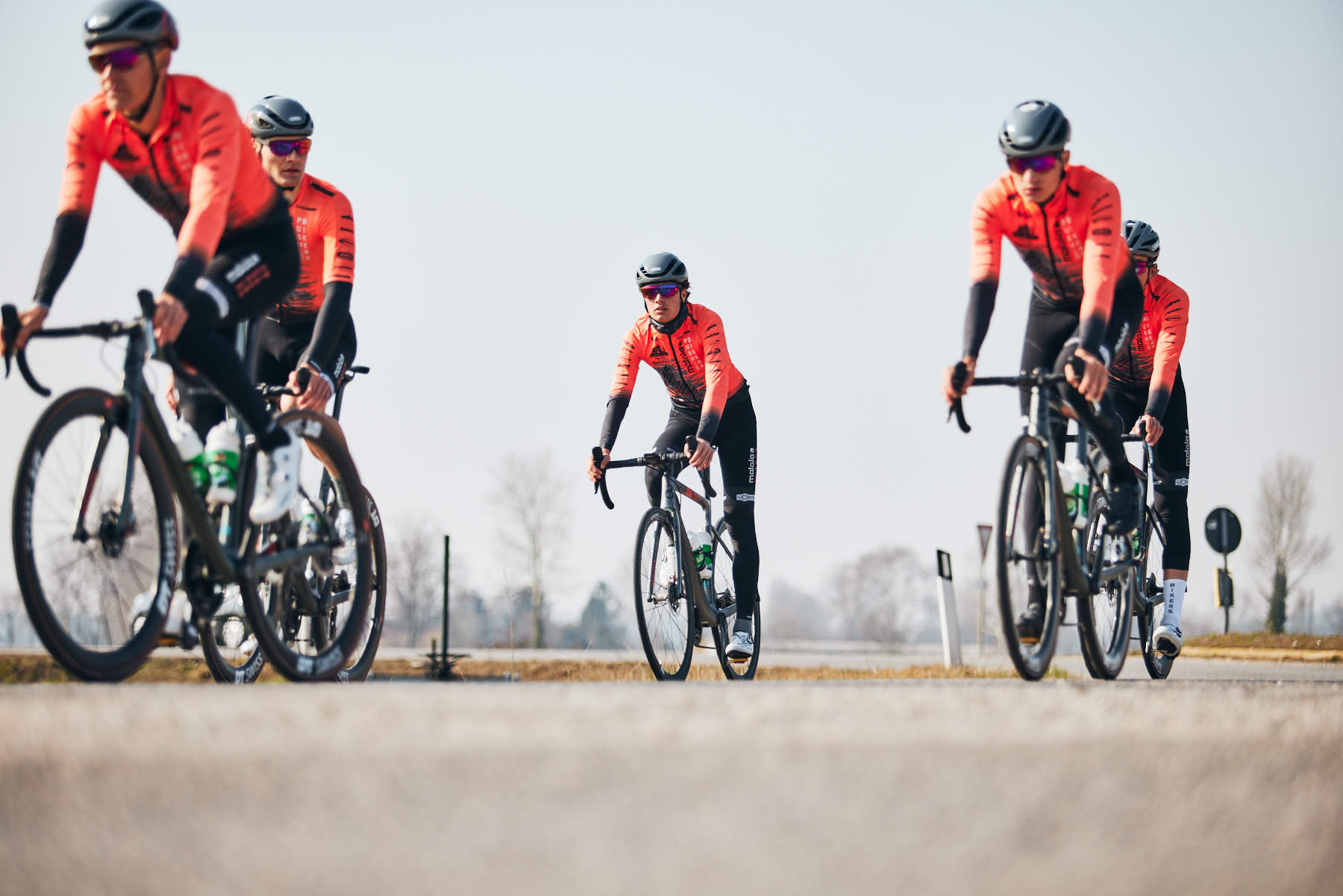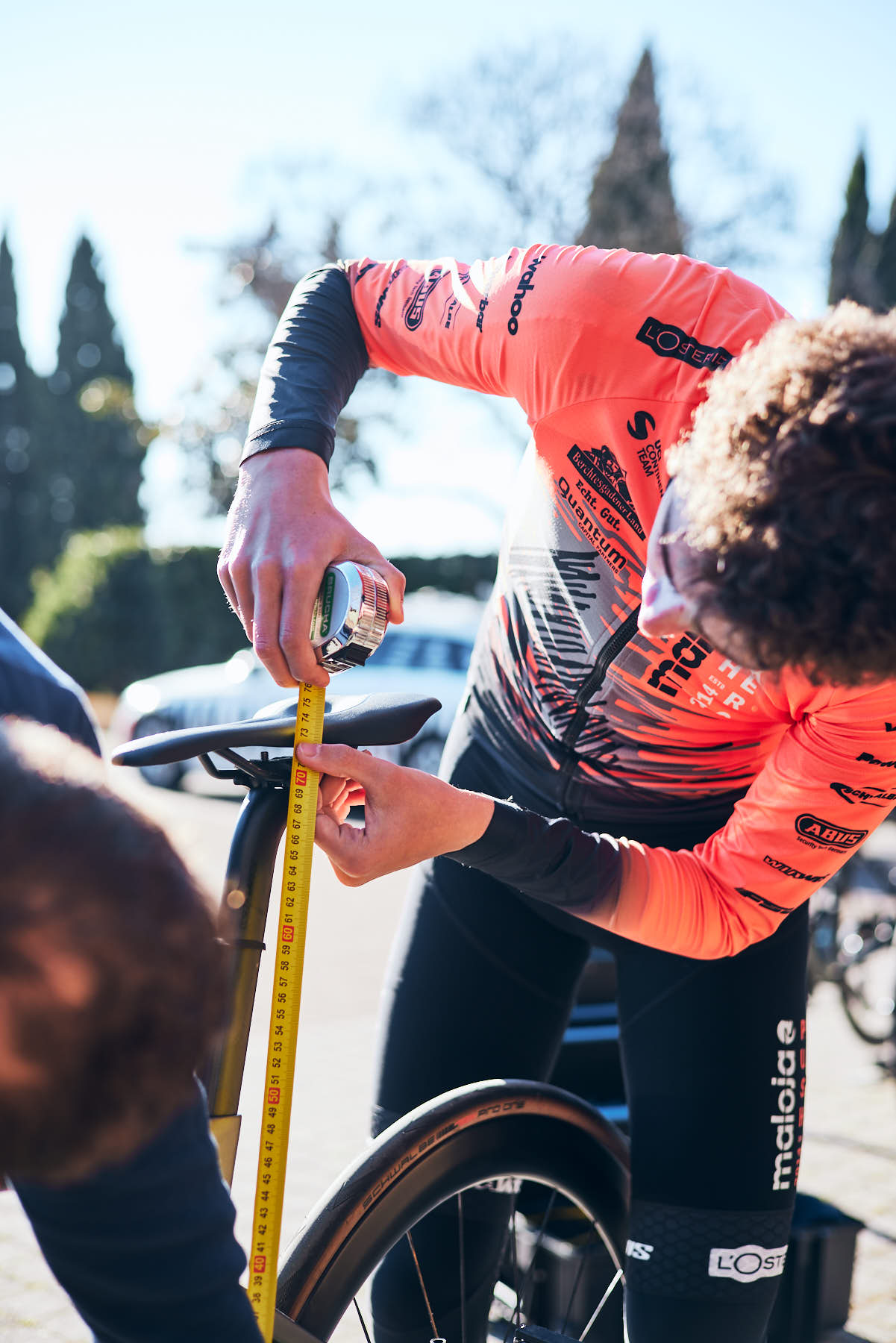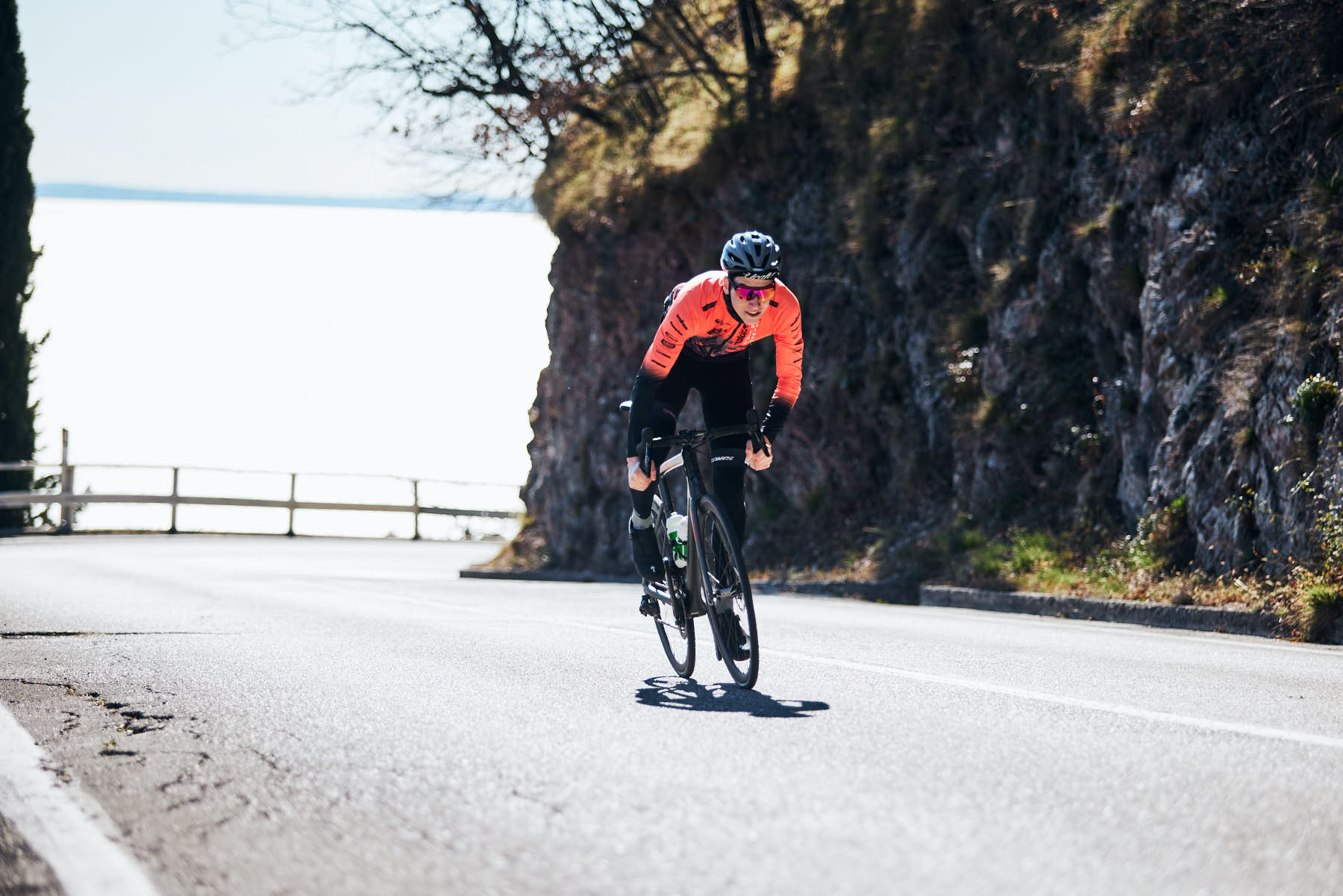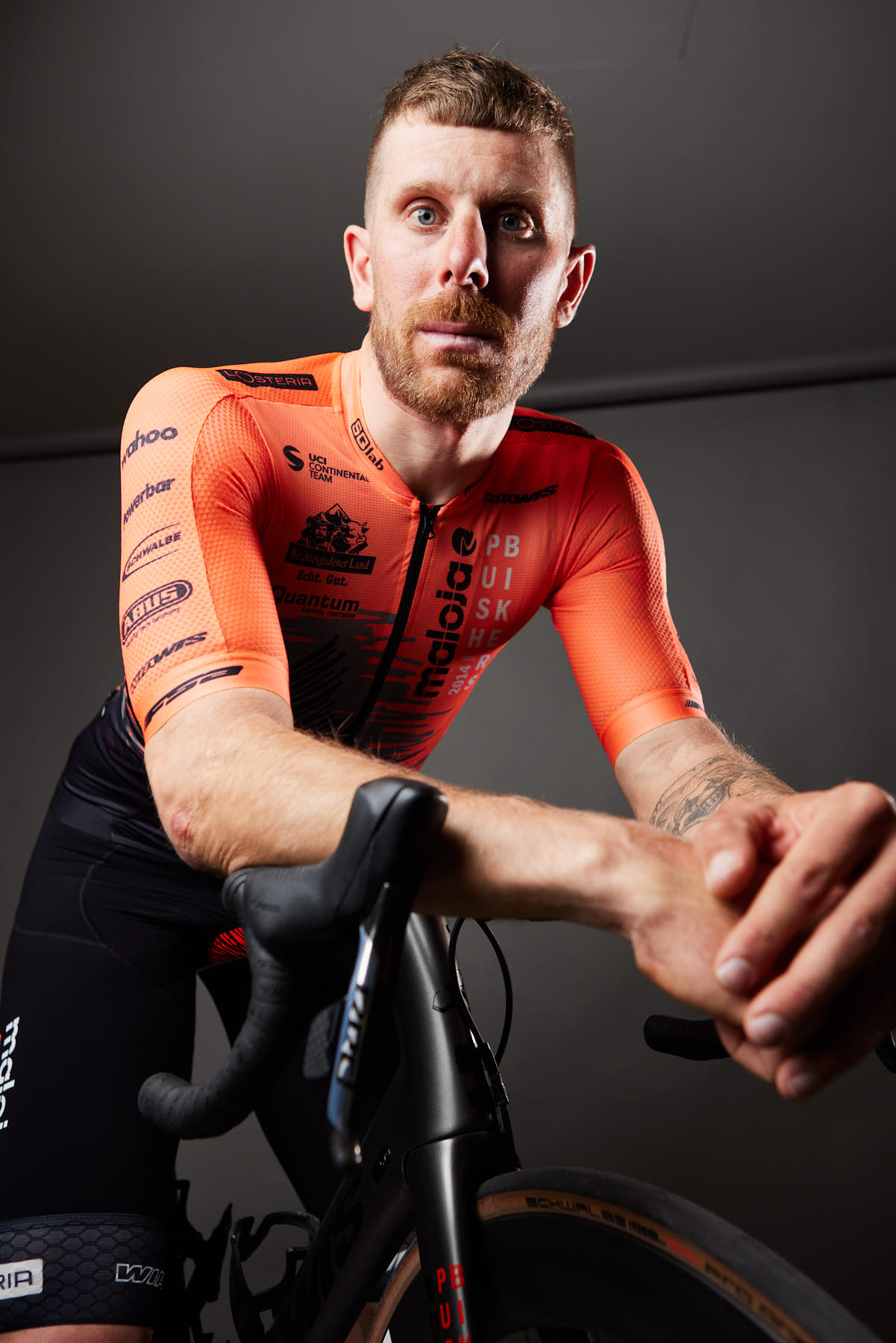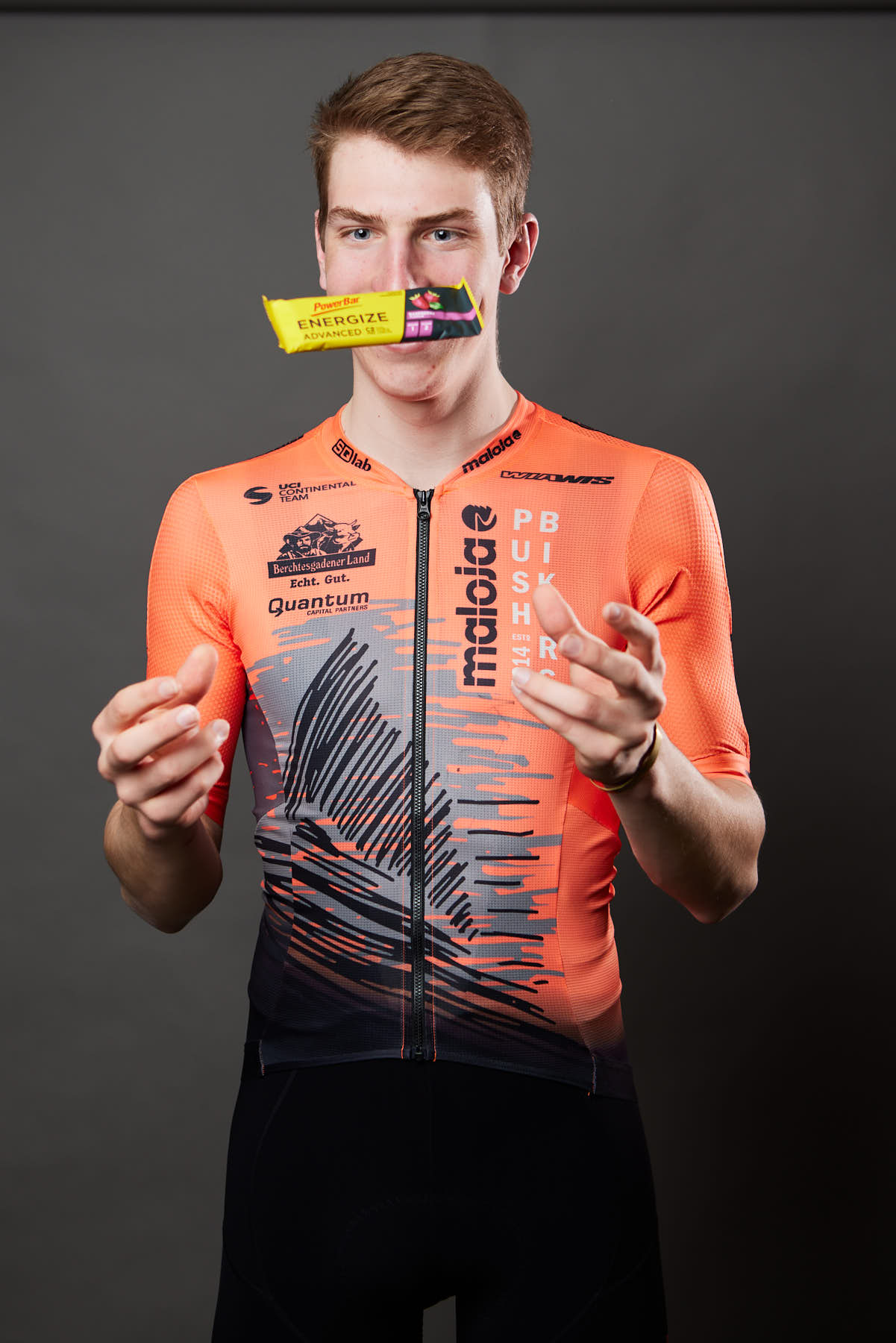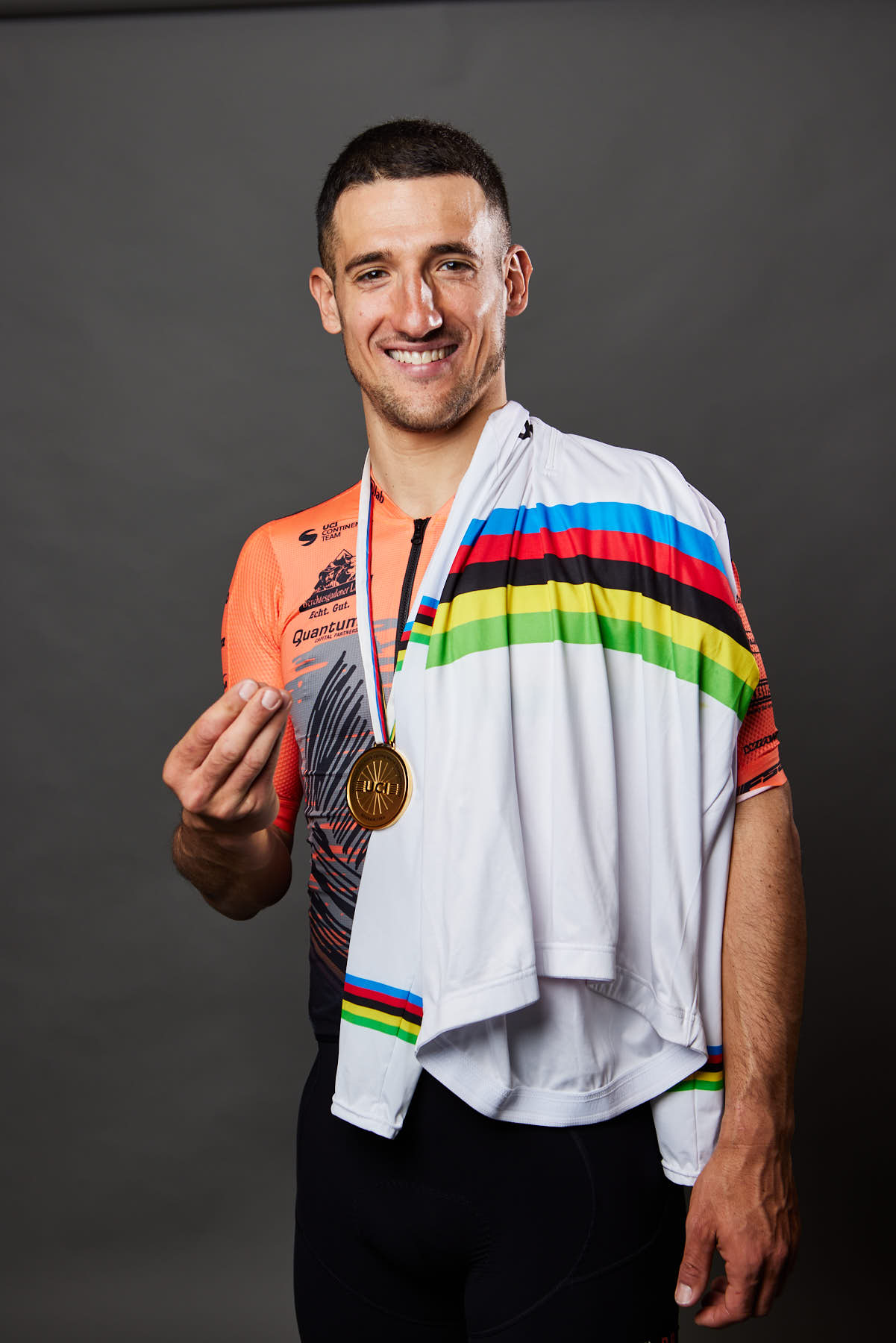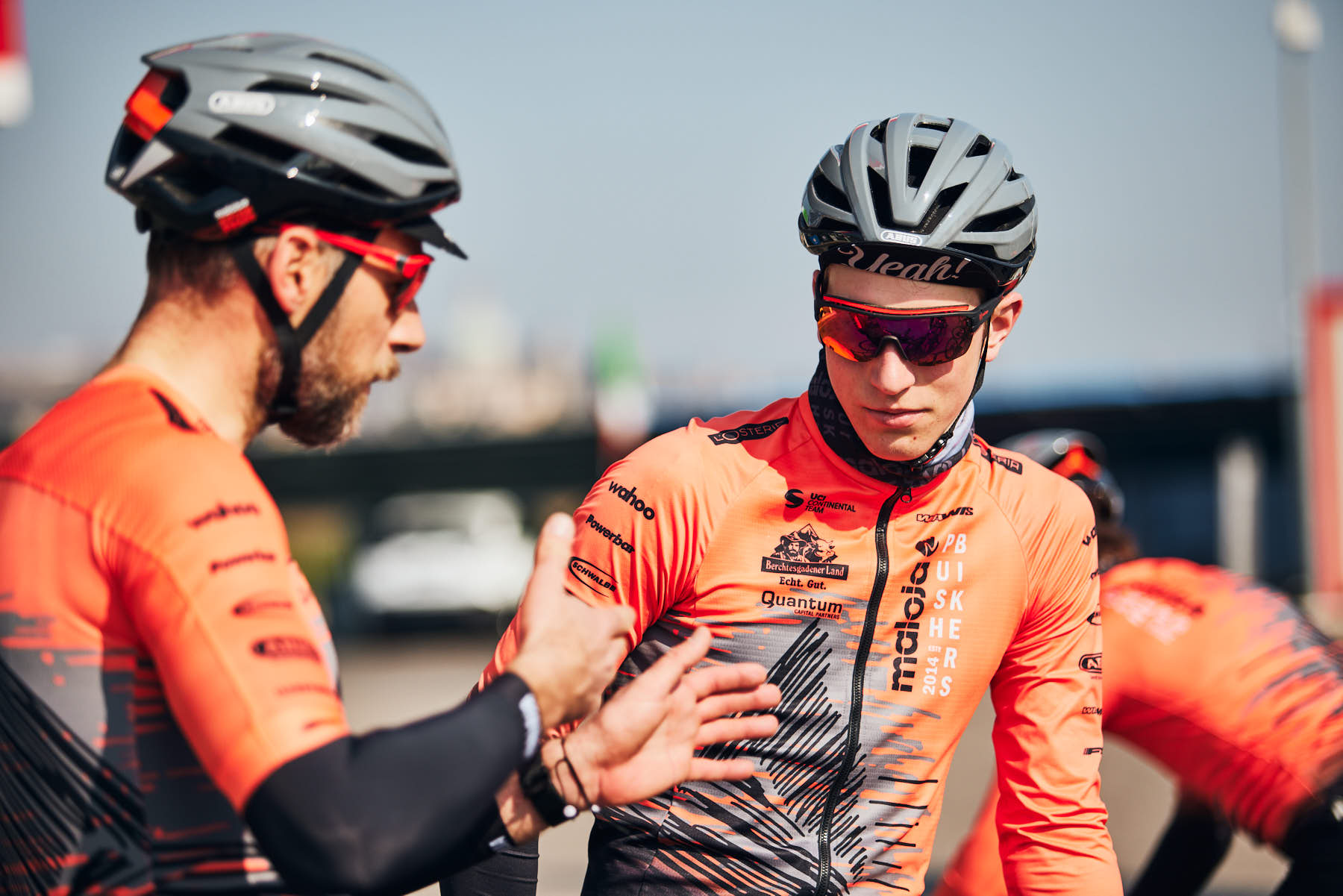One thing we noticed during the training camp: the interplay between the young and older riders, the quieter and the less quiet characters. And how the experienced cycling pros deal with the youngsters. After all, there are a lot of questions floating around in your head at the beginning. When you know you want to cycle – but you don’t really know how to race or how to live your life on a bike. Corbinian, for example, is racing for the first time this year with Pushbikers. You can find his questions to Pippo and Liam here.
C: One week of training camp, then straight on to Croatia for the next races, which take place over two weeks. How do you do it when you are not at home for several weeks?
P: Ich versuche, so organisiert zu sein, dass ich die gleiche Verfügbarkeit wie zu Hause habe, sowohl für das Training als auch für das Privatleben.
L: Ich denke, man muss sich darauf konzentrieren, weil es ein Job ist, und das Beste aus jeder einzelnen Chance zu machen.
C: How can you reconcile this enormous time commitment with a family?
P: I make the most of every moment I can spend with my family and enjoy that time. Then, fortunately, there are social networks that make me feel less distant.
L: For me it’s less difficult because I don’t have children. But I still find it exhausting because I am separated from my family. When I’m back home, I consciously take time, also for my parents.
C: And when you are away for so long, what does that mean for family or girlfriend?
P: It means that my wife has to try to do everything at home without me. Luckily our parents live not too far away and help her. As I said, we still try to keep in touch by video call so we don’t feel the distance. If I worked eight hours a day plus one or two hours commuting to work, I wouldn’t be able to enjoy our child as much. So I prefer my kind of life as a cyclist because when I am at home I am always available.
L: My girlfriend accepts my lifestyle and you have to make sacrifices to get results. With a squad like this year’s at Pushbikers, it’s easier for me to be away from home. What do you think about that?
C: Hm, if you look at it that way, maybe again it’s a big advantage for everyone involved.
C: It’s not a big issue at the beginning, but I’m already thinking about what it’s like financially when you’re a professional cyclist. Is it possible to finance a life from cycling?
P/L: If you are not a champion, it is difficult to finance a whole life with cycling. You don’t earn the money like in football. That means that as long as you are active, you can make a living from cycling, but then you have to find a job opportunity. Because a career as a sportsman is not very long. But that doesn’t mean you shouldn’t try in the first years, even if you have to tighten your belt for that.
C: How do you structure your training as a full pro? Do you focus more on intervals or longer basics ?
P: Cycling has changed and you need more intensity than long distances. That doesn’t mean you don’t need to do both, but I focus more on high intensity intervals. I prefer sprints.
L: Also for me: short but intense like a good track rider.
C: How do you manage to motivate yourself all year round – especially in the months of the racing season, of course? Do you have any advice?
P: Results and performances motivate me. One piece of advice I can give: Surround yourself with people who support you and don’t be ashamed to ask for help when they do.
C: How can you learn to “read” a race?
L: There are not many tips: You have to race a lot and listen and ‘steal the trick’ from older riders like us. Modesty and a basic willingness to learn are very helpful.
C: Was the beginning of your cycling career often marked by failures? And how do you best deal with that – because you don’t have so much self-confidence or support yet.
P: We both had the same experience: after a disappointment or failure, we thought to ourselves, why are we doing this. And then you realise: we love cycling and that outweighs all the disappointments and bad moments. Of course, we also have a lot of people who support us and believe in us, and that always helps. Do you think moral support can help you?
C: Sure, moral support is incredibly important for me. It’s how I compensate for frustration and anger when something didn’t go according to plan.
C: How do you see it – you often hear that you should take everything calmly and not “burn yourself out”. Is that true?
P: Again, I have to say that cycling is changing and there are a lot of young people at the top now. But I am still of the opinion that everyone has to take their time in order not to burn out. Also mentally. So stay focused, but don’t rush: set yourself a goal.
L: Yes, that’s exactly what I think too. You have to find the right time for it.
Do you have a clear goal at the moment?
C: From a sporting point of view, it’s difficult for me to set a clear goal this season – in terms of winning. But my personal goal is to learn as much as I can from the year and to strengthen the team in all my ways.
C: What’s the best way to regenerate after a race lasting several days?
P: With a stay with my family, a few massages, a few days of coffee and then I start to prepare the upcoming challenges.
C: And how can I improve my bike further ?
P/L: We rely on competent people. We have the experience to work on our bike ourselves, but cycling is also changing a lot in this respect and it is very useful to have a specialised person by your side. With such a person you should have a good dialogue, give your own feedback honestly. Find a good bike fitter if you need one, we can also give you recommendations.
C: How long would you like to continue cycling?
P: My career is coming to an end. But as long as I’m still having fun and suffering, I’ll keep going! But then I would like to put my experience on the line and teach young people like you the art of cycling. Would you like to have a sporting director like me?
C: For me, a sporting director is a person of respect versus a boss! But at the same time a friend who can build me up in difficult moments, like defeats. Yes, I think that would be a good role for you.
And what about the duration of your career, Liam?
L: I want to cycle until I reach my goals – which are the Paris 2024 Olympics as a priority!
